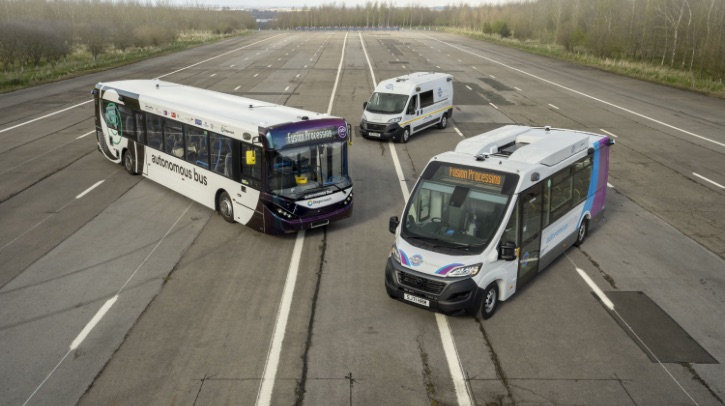We are fast approaching a pivotal moment in the evolution of transportation and it’s time for operators of commercial vehicle fleets to plan for the availability of these vehicles over the next three to four years, much sooner than previously expected.
The transportation and logistics industries are on the cusp of a revolutionary transformation, driven by automation. The UK’s recently passed Automated Vehicles Act 2024 provides a solid legal framework for the deployment of autonomous vehicles on public roads. This legal backing, coupled with technological advances by companies like Fusion Processing, signals that the autonomous vehicle market is ripe for expansion.
The concept of autonomous vehicles has long been viewed through the lens of consumer transportation, but there have been a handful of pioneering companies that have shifted the focus to the commercial sector. Automated trucks and buses are uniquely suited for applications where consistency, repeatability and efficiency are paramount. This makes them an ideal solution for logistics, public transportation and industrial operations. Automated vehicles excel in environments where route predictability, safety and time adherence are critical factors for success.
Fusion Processing is not new to the game. We have clocked up over 85,000km of real-world experience on large buses in mixed traffic environments. Our automated drive system, CAVstar, has proved its reliability and robustness, and now it’s ready to take on the commercial vehicle sector, bringing significant advantages that are too compelling for fleet operators to ignore.

Automated commercial vehicles are poised to deliver substantial benefits to operators. One of the key advantages is the precision with which they can handle repeat routes, ensuring a higher level of consistency than human-driven counterparts. This is crucial for logistics companies that depend on reliability for their supply chain operations. The precision of automated vehicles translates to better adherence to schedules, reducing the risk of delays and inefficiencies that cost businesses time and money.
Moreover, automated vehicles offer significant savings in wear and tear, thanks to their gentle driving style. This leads to reduced tire and brake wear, as well as lower fuel consumption or energy use in electric vehicles. In an era where sustainability is a priority, the lower emissions from these vehicles contribute to the global push toward greener transportation solutions.
The commercialization of automated trucks and buses is not just a matter of technological readiness; it’s about regulatory support as well. The Automated Vehicles Act 2024 enables on-highway trials to grow into regular service routes where autonomous vehicles offer financial and sustainability advantages to enterprise fleets.
Fusion’s CAVstar system is already being showcased in a diverse range of real-world applications. For instance, the system was used in the Bradshaw EV T800 Tow Tractor, a materials handling vehicle that recently completed successful trials at a UK industrial site. Following these trials, the vehicle is expected to enter the market by 2025, offering an exciting glimpse into the near future of commercial autonomous operations.
The path to full-scale commercialization of autonomous trucks and buses is not a solitary journey. Collaboration with industry partners is of vital importance to bring solutions to a wider market. By forming partnerships with truck and bus manufacturers, we aim to introduce automated vehicles across a broad spectrum of use cases between 2026 and 2028.
In early September I had the privilege of giving a presentation at the CENEX event, where I highlighted how the convergence of technological advances and regulatory readiness makes now the perfect time for logistics operators and public transportation providers to begin planning for the arrival of autonomous vehicles and looking at how these will form a vital part of their fleets and, when used correctly, transform efficiencies.
The Road Ahead
The commercialization of autonomous trucks and buses will undoubtedly reshape the transportation and logistics landscape. For companies like Fusion Processing, which has been at the forefront of autonomous vehicle technology since its founding in 2012, this moment represents the culmination of years of research, development and real-world testing. Our CAVstar system, designed for professional, commercial operators, not only ensures safety and efficiency but also supports a smoother, greener transition to automated fleets.
By Jim Hutchinson, Fusion Processing